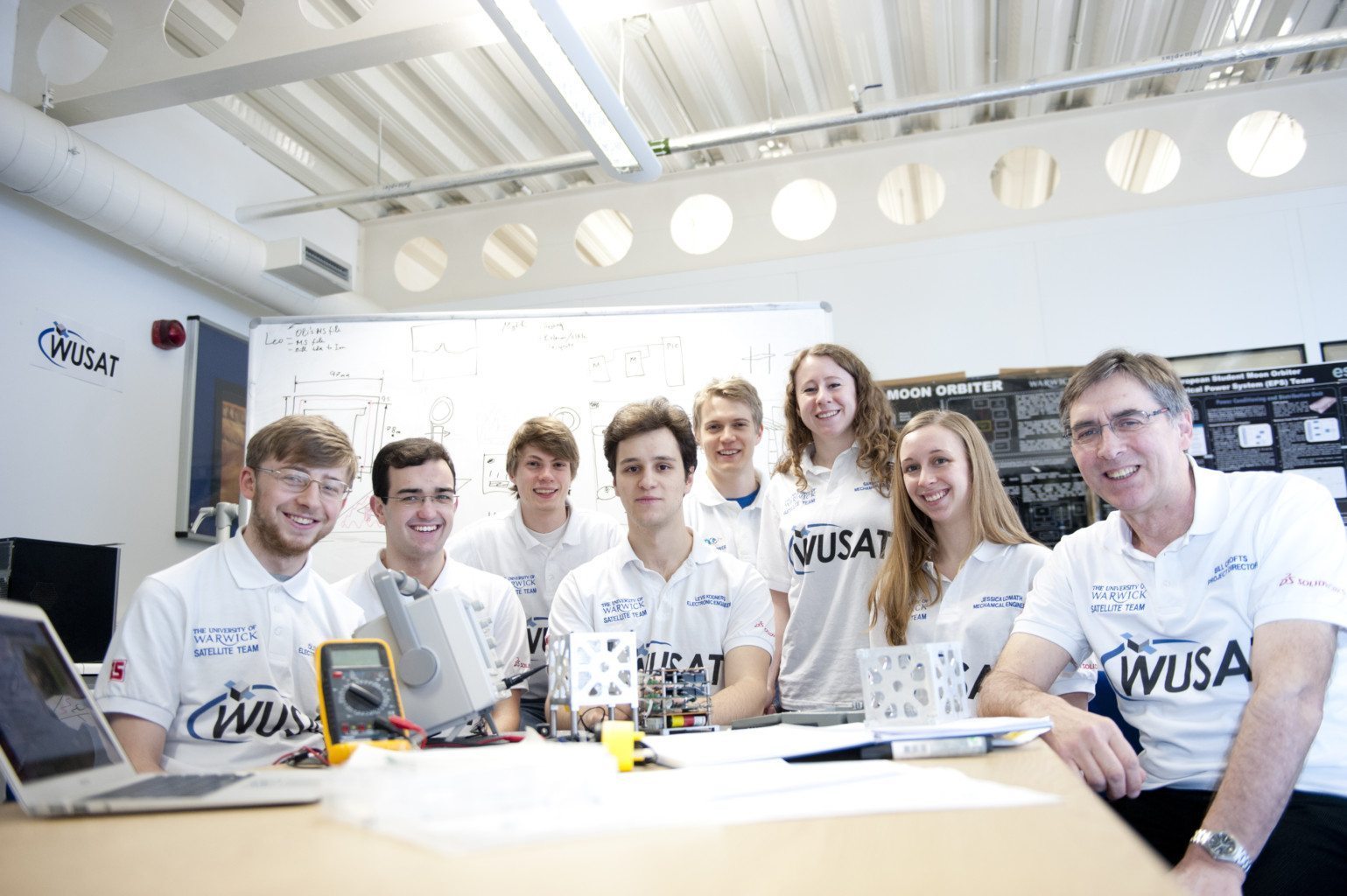Warwick students join the space race
Warwick engineering students have built a satellite which will be taken into space by a European Space Agency (ESA) rocket.
Warwick University Satellite Team (WUSAT) is the only British team selected by ESA to participate in the Rocket Experiments for University Students project (REXUS) 17/18 campaign for 2015 launch.
The current team consists of seven Master of Engineering students, two PhD advisors and one supervising academic, Dr Bill Crofts. The group will test the satellite design by a high-altitude balloon launch this March.
Following this, the satellite will be sent to around 100km into space from the Swedish Esrange Space Centre in spring 2015.
It will help astronomers study planets outside our solar system by using light to analyse the composition of their atmosphere.
The satellite will look at gases such as oxygen and sodium by measuring the intensity of sunlight at specific wavelengths and different heights as it descends.
The project could help determine the possibility of life on other planets.
Christopher John Hanbury-Williams, an Engineering student and WUSAT member, said: “I am delighted to be selected for the project, it is one of the most prestigious at the University and its challenging nature is exactly why I applied for Engineering at Warwick.
“The project demands the same quality of work that any other space project with the ESA would; learning to work at this level will be an excellent boost to our careers and job applications.
“In addition, the project offers an excellent opportunity to work alongside students with varying engineering specialties, exactly as would occur in the workplace.”
The WUSAT scheme has been running for eight years. Previous teams worked on the design and the electrical power supply system for the European Student Moon Orbiter (ESMO) satellite.
Last year’s team launched their prototype satellite from Wales to an altitude of 30km, which constitutes the basis for the current satellite project.

Comments (1)